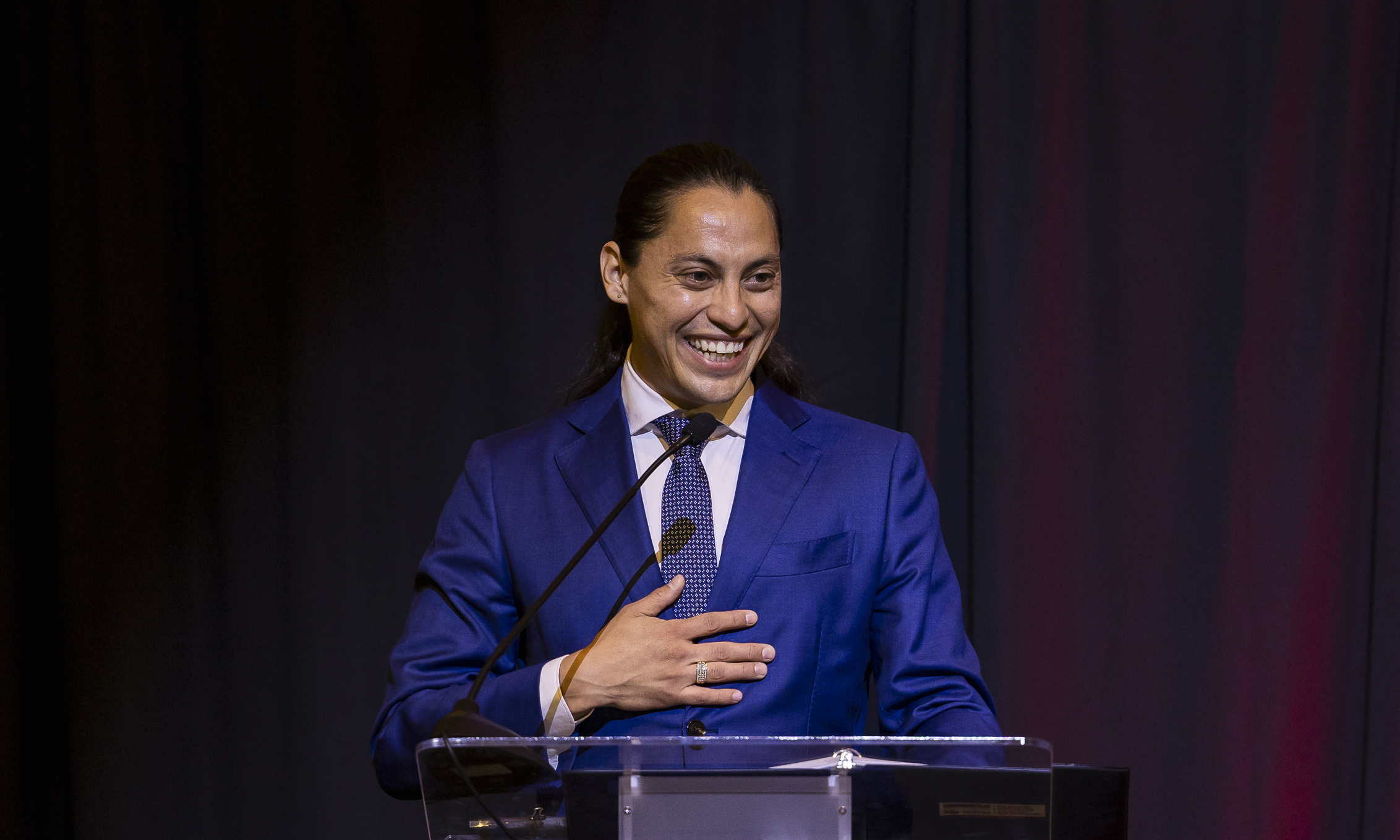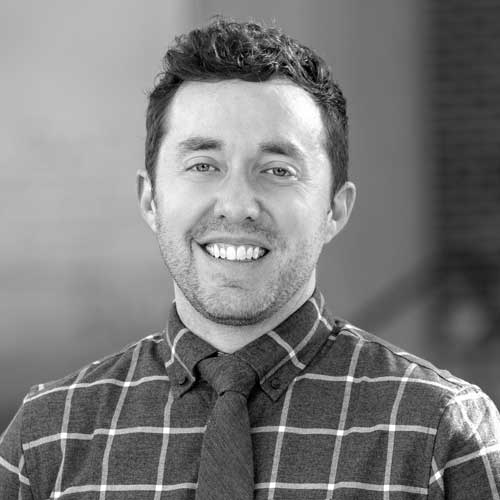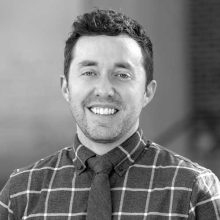A Conversation with Eduardo Gonzalez, 2024 Alli Gerkman Legal Visionary Award Recipient
Editor's Note: Eduardo Gonzalez, Program Officer for Civil Justice at the American Academy of Arts & Sciences, is the recipient of the 2024 Alli Gerkman Legal Visionary Award, which recognizes innovators who have made significant impacts early in their legal careers toward making our legal system work better for everyone.
 What drives your passion for access to justice?
What drives your passion for access to justice?
Every new project I learn about from the field gives me confidence that solutions are within reach for more and more people, that—for example—my parents, with a little help from my siblings or nephews, could get information about programs for small businesses, apply, and understand their obligations. That if a cousin or friend is in an unwanted and dangerous relationship, that they could leave and use the law to protect themselves, even if they couldn’t afford an attorney. When I can point someone to their state’s legal aid website and statewide self-help information, and they can understand their options to decide whether to pursue getting a lawyer or applying for legal assistance, that’s what motivates and keeps me optimistic.
My passion for access to justice comes from knowing there are people in communities, within courts, and working at legal aid and nonprofit organizations, focused on delivering the best assistance they can with the resources they can gather. I’m most motivated by the professionals and innovators supporting each other towards a vision that can only be achieved collaboratively, at the same time by every community.
What are some of the significant obstacles or systemic challenges you have faced in your work, and how have you worked to overcome them?
Civil justice is still an emerging field of work—it felt nascent when I was graduating law school in 2016. Today we are seeing new kinds of professionals participating in researching, designing, and implementing civil justice solutions, but for the most part, there isn’t a career pipeline for talent into the sector from a national perspective. Most jobs were legal services and court roles. Maybe a (very competitive) public interest fellowship.
I considered myself deeply thankful for my 18-month fellowship with the Self-Represented Litigation Network and Georgetown’s Institute for Tech Law & Policy. There I would dig into civil justice, understanding it from a national perspective, and learn about the continuum of solutions being developed for different settings. We were able to secure a 12-month extension from a different funder to expand our project into justice technology. Following the end of that project, we were able to support a full time SRLN position. “We” because it took trust and support from leaders like Katherine Alteneder to understand the value such a role would bring to the national community. My career path wasn’t traditional or secure like other law jobs, and it would get me further and further from law practice.
In some way, the validity of civil justice careers—the research to best practices, connectivity and knowledge-sharing, and thought leadership work—is still getting proven out. It isn’t entirely academic, and it may not even involve direct legal services to clients. It’s work that I think of more as “glue”-work or people-infrastructure, coordinator roles. Yet, even my current position has an end date, since most nonprofit projects are fundamentally driven by funding timelines.
Despite these challenges, I had opportunities. I’ve learned a great deal, in a unique way, that will undoubtedly enable me to continue to advance in the field. And now, more, but still too few, positions are being funded to do the sort of coordinating work that simply would not have been possible when I was first leaving law school in 2016. So I remain optimistic the field is heading in the right direction.
What aspect or moment in your career are you most proud of?
A recent and significant moment in my career was convening I organized that convened over 60 civil justice and philanthropy leaders for a summit on civil justice. After joining the Academy as the Program Officer for Civil Justice, I was tasked with implementing recommendations in reports published in 2020 and 2021. The primary mandate: a call for a national effort to coordinate vital progress towards the Academy’s civil justice recommendations.
Being familiar with the field, its experts and thought leaders, I knew I needed to bring in philanthropy experts with civil justice leaders to design, organizers, and host a successful event. This event brought together the right mix of topics and participants that effectively raised the profile of civil justice solutions and the providers making them a reality. It was possible to organize the stellar panels for the Summit in large part because of the relationships and expertise I had developed before joining the Academy. Through my work at the Academy, I had an opportunity to honor and elevate the amazing work I had so closely followed throughout my career.
Which IAALS projects resonate with you the most?
Generally, what I appreciate about IAALS projects is that they seek to deliver solutions and ideas on a spectrum. For example, a recent article written by the Innovation for Justice team and published by IAALS on alternatives to lawyers rightfully articulates different models as possible pathways. Community justice workers, allied legal professionals, new business models, and sandboxes can all serve communities depending on the opportunities therein. This sort of framing helps advocates in any state think through a range of solutions that could work, without closing the door on other alternatives.
That awareness is what resonates most with me—that every solution has a place on our menu of approaches to the civil justice crisis. In this way, we dignify and meet communities where they are at, with all possible solutions—or we design new ones when adaptation doesn’t make sense.
One other project is the latest work to update the Foundations for Practice project. This is especially because it’s a collaboration with LSAC, which has an important role to play in the movement to foster pipelines to civil justice. Even if a student ultimately doesn’t pursue a JD, they may still want to pursue roles in courts, or within communities that are being validated via the four pathways mentioned above.
What are some of your favorite books?
I’m currently a huge fan of Brandon Sanderson—first for his artful finish of the Wheel of Time series, but also because his fictional universe is so compelling and well thought out. I enjoy his books and their creativity.
Another book is Braiding Sweetgrass, by Robin Wall Kimmerer. I don’t know the reality of my family’s ethnic roots, but I find a great deal of dignity when I read the perspectives of indigenous writers. This book is written as an anthology of wisdom about our natural environment and the science it teaches us.
Which living person/historical figure do you most admire?
My parents had a vision of a life not a single person in their family had ever realized, and they did it. I’m so impressed and blessed to live in their lessons.
I would be remiss not to mention the amazing mentors that guided my career. It was through their vantage point and lessons that I was able to shape and build the path I’ve taken. True mentors, like Dan Jackson and Jules Sievert at the NuLawLab, Tanina Rostain at Georgetown, Katherine Alteneder at SRLN, and now the very co-chairs that advise my work at the Academy – all have sought to cultivate my skills and perspective. And every time I call for support, they have been ready and responsive, promoting my abilities and my vision.
What trait do you most admire in others?
I most admire our ability to reach for others and connect. Despite conflict, friction, and tensions, there are threads that tie us together that can help us reach a state of empathy, compassion, or sympathy. It’s not always about agreeing or helping someone, but we have an innate ability to care for others that I admire.
What movie do you wish you could watch again for the first time?
Everything, Everywhere, All at Once. The cinematography, the story arc, the pace, the comedic relief . . . and all without overproducing very real human experiences.
What is your long-term vision for the broader movement for access to justice and legal empowerment?
Civil justice and local legal assistance/resources are part of basic, civic education at public schools. We know a vast majority of legal problems are not trials or litigated, so it’s not about schools, governments, or companies getting sued; it’s about ensuring parents, students, and every day public servants have the information they need to actualize the rights, freedoms, and benefits of our constitutional democracy.
What would you say to anyone working toward achieving access to justice in their communities?
You’re not alone. Reach out and we can figure out who you might learn from. Also, there’s so much progress it’s impossible to feel demoralized. Start by learning more about the problem and see if there isn’t already the beginning of a solution out there.
What does it mean for you to receive the Alli Gerkman Legal Visionary Award?
I’m inherently a connector, a bridge builder, and promoter. My personality evaluations nearly always point to my being Extrovert (E), Intuitive (N), Feeling (F), Perceptive (P)—an archetypal “campaigner”. I have a vision for access to justice, and to achieve it, it will take much more than just me or any small group of people. It will take time to reorient the system—and I’m in it for the long haul. For me this award is affirming, because the incremental work of connecting people and organizations, of promoting projects and celebrating successes, means often my work isn’t as obvious.
That’s not to say I don’t get credit—in fact I feel very privileged to have so many mentors, supporters, and colleagues that will quickly set up a time to chat through a problem or idea with me. Rather, I know that my investments and efforts for the field are necessarily less visible—because the doers, designers, and providers at the frontline are the ones making the help a reality. I have the esteemed privilege of amplifying and making that progress known, and I feel I have a knack for it.
This award means, for me, the role I’ve taken in the field has been helpful. That my work and ideas are being received by the field and affirmed.


